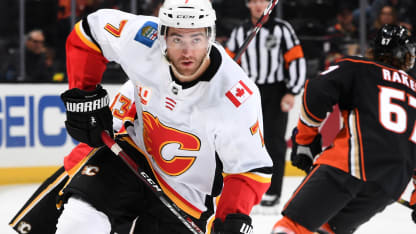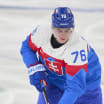Twenty-one hours earlier, it was anything but.
Colleague George Johnson later remarked that in his 38 years covering the Flames, along with some of the world's most iconic sports moments, a medical scare like this has never happened in this building.
And it's the last thing you'd expect to witness when you cover a game for a living.
It's easy to think of these guys as bulletproof.
The courage they show, the confidence they have, and the high level at which they perform - it's almost impossible to think of them as anything less than the Teflon-strong forces of nature we spent our childhoods idolizing.
But there we were, staring blankly at a scene that shocked us to our core.
The passing seconds felt an eternity.
Meanwhile, the professionals who spent years training for this went to work.
Assistant Athletic Therapist Mike Gudmundson and Massage Therapist James Borelli were first to the scene - literally, in the blink of an eye.
That help arrived in a calm, coordinated effort.
Then, as the players huddled en masse at the blueline, it got quiet.
Not a whisper.
Not even the sound of a shuffling skate blade for a good 10 minutes as Brodie received treatment, finally sitting up and getting a tap on the pads from a concerned coach Bill Peters, who halted practice and eventually steered the rest of his players to the dressing room.
Players, reporters, and security staff were all visibly shaken.
"When he first passed out, he was out," Treliving said. "By the time I got down to the ice, his eyes were open. I don't know if he was communicating a lot, but he was alert.
"It can happen to anybody, but especially when it's a teammate, I think our team was very affected. Ian and I were at the hospital all while TJ was there, and it was a stream - the whole team was up there at some point. They were very affected. We met this morning, updated them, but… the closeness on this team was prevalent when they see a teammate in trouble like that."
Because around here, your team is your family.
Brodie will undergo further testing in the coming days, including a battery of neurological assessments and cardiological workups - among others - to rule out any potentially serious underlying causes.
For now, hockey can wait.
The important thing is that Brodie is home, happy and resting with his wife and young daughter.
Nothing else matters.



















